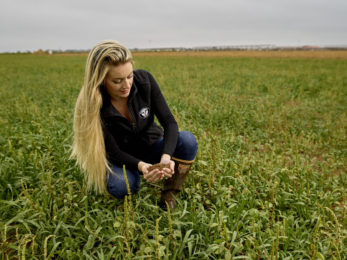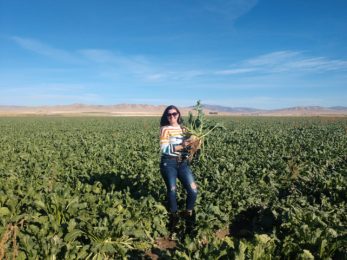Making Sense of the Alternative Meat Melee
New meat alternatives are capturing headlines and the imaginations of consumers nationwide. People are understandably curious about the new products and whether they are better than the old tasteless versions of veggie burgers from years ago. Consumers are also increasingly scrutinizing the policies and practices behind the products they purchase – whether food, clothing or cars – and meat production is no exception.
As an array of meat alternatives began emerging, whether plant-based, cell-based or otherwise, you may have noticed a feisty dialogue between conventional meat producers and the new kids on the block. If you are interested in the topic, I hope you’ve also noticed a healthy pivot in the approach some are taking. I call attention to it because I think consumers – and overall trust in all food choices – are the beneficiaries. Let’s take a closer look.
Some producers of meat alternatives came out swinging at conventional farmers. References to alternatives being “cleaner” and “more responsible” were repeated time and again. In response, meat producers responded in kind with terms like “fake meat” and by questioning everything from nutritional claims to the safety/oversight of some alternatives.
And so it goes with yet another food fight that has included lawsuits over labeling and disputes over regulation. You tell me, but I have to imagine the fighting only undermines overall public confidence in the safety of our food system.
Implying that meat sold in grocery stores and meat markets in the U.S. is anything but clean is irresponsible. The U.S. has the safest food supply in the world, hands down, proven in mounds of research. We have multiple layers of oversight and testing to affirm safety.
Conversely, labeling new and emerging alternatives as “fake meat” is also misguided. Why? Because consumers are not being duped into thinking alternatives are “real” meat. In fact, the marketing strategy for many alternatives is specifically to distinguish them from “real” meat.
Bottom line: consumer choice is a good thing. The entire food system would be well-served to embrace it. That’s part of the reason I was so pleased to see at least one of the headline-grabbing alternative meat developers change his tune in an impressive pivot.
He entered the scene swinging hard: criticizing conventional meat production as problematic for the environment and animal welfare. Fast forward a few years: he recently publicly applauded the farmers who raise food animals as leaders in innovation who have stepped-up time and again to meet increased demand for protein. He pledged to work side by side with conventional farmers, noting that demand for meat is expected to double by 2050 and expressing hope that meat alternatives can take some pressure off conventional agriculture by filling a small slice of the demand.
Now that’s an about-face. Good for him.
There is a valuable lesson to be learned along the lines of JFK’s famous aphorism about a rising tide lifting all boats. Welcoming the array of start-up food companies that are generating consumer excitement is a smart move by conventional food and ag. Newcomers to the food scene would be well-served to market their products based on real merit, not by attacking safe, healthy products that have delivered the protein needed for families to achieve nutritional balance for generations.
Bottom line, both consumers and food producers win with a “big tent” approach. Demand for protein is on the rise, creating plenty of space for everyone. So, let’s toast consumer choice and continue earning consumer trust together.
I’d love to hear from you if you see the world differently. Send me an email at AskDrDorman@pahc.com or call me at 844-288-3623.

